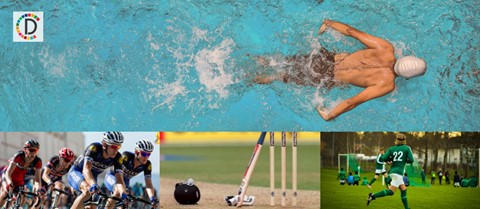WRAPUP 1-Games-Teen swimmer Pan adds to China's golden glow at Asian Games
The Olympic 200 metres butterfly champion Zhang Yufei also won her pet event with ease, posting an Asian Games record of two minutes 05:57 seconds. "My first mission was to take the gold for China," said Zhang, flashing a beaming smile.

Chinese prodigy Pan Zhanle became the first Asian swimmer to break the 47-second mark in the 100 metres freestyle at the Asian Games on Sunday, while North Korea celebrated its return to major competition with a medal in the judo. Pan stormed to gold in the Hangzhou pool with a scintillating time of 46.97 seconds, the fifth fastest ever, announcing himself as a major contender in the blue-riband event a year out from the Paris Olympics.
For all that, the 19-year-old's disappointed reaction was almost as remarkable as his swim. "I think it was so-so. I had my eyes on the world record," said Pan. "To miss it by 0.11 seconds is quite a pity.
"The Asian record doesn't feel like something extraordinary. This is something I should get." The world record of 46.86 seconds is held by another 19-year-old wunderkind, Romanian David Popovici.
Pan's win was the highlight of the opening day of swimming, which saw China bagging all seven titles in the pool and 20 of 31 gold medals across all competitions. Wang Shun, the Olympic men's 200 metres individual medley (IM) champion, also shone on the night after lighting the cauldron at the Games' spectacular opening ceremony.
His time of one minute 54.62 seconds for the 200 IM gold in Hangzhou made him the third fastest swimmer in the event after Ryan Lochte and Michael Phelps. The Olympic 200 metres butterfly champion Zhang Yufei also won her pet event with ease, posting an Asian Games record of two minutes 05:57 seconds.
"My first mission was to take the gold for China," said Zhang, flashing a beaming smile. "Next was to beat (compatriot) Jiao Liuyang's Games record, and I also did that.
"I actually felt the pool was a little slow for me... I felt I could have gone even faster." LONG EXILE
China's neighbour and long-time ally North Korea arrived as an unknown quantity, with Hangzhou its first international multi-sport event since the 2018 Asian Games in Jakarta. The COVID-19 pandemic and an International Olympic Committee (IOC) suspension contributed to their long exile.
The 24-year-old judoka Chae Kwangjin put his nation back on the map on Sunday as he battled to a bronze playoff in the 60-kg division then pulled off a double-leg take-down (morote-gari) of big Mongolian Ariunbold Enkhtaivan to secure the minor medal. With their nations still technically at war, North and South Korean athletes are no longer marching together or competing under one flag.
But Chae shared an unsmiling handshake with South Korean runner-up Lee Harim after they received their medals. The North Korean flag was hoisted during the medals ceremony and the nation's athletes paraded behind it at the opening ceremony -- despite it being banned from all major international competitions except the Olympics due to anti-doping issues.
The Olympic Council of Asia (OCA), which runs the Games, defended its presence. "Let me tell you, our intention is that everyone should participate," acting OCA President Randhir Singh said.
About 12,400 athletes from 45 nations are competing for 481 gold medals across a huge programme of 40 sports at the Games, which were delayed by a year due to COVID-19. Five years after being a demonstration event at the 2018 Asian Games in Jakarta, esports made its debut as a medal event, drawing young fans to watch teams of gamers duel in virtual soccer and "Arena of Valor", a multiplayer battle arena game developed for mobile phones.
Cricket's return to the Games has been a coup for organisers, with powerhouse India bringing men's and women's teams for the first time. India's women thrashed Bangladesh in the semi-finals by eight wickets to book a gold-medal decider against Sri Lanka on Monday.
China has pulled out all the stops to ensure a smooth event, its first major sporting competition since the country ended its "zero-COVID" policy in late 2022. However, diplomatic tensions have undermined the organisers' narrative of a harmonious gathering of nations, with India furious over a visa issue that meant three of its athletes were unable to compete in wushu, the Chinese martial art.
The OCA said it was "looking into" the politically charged issue with local organisers. That was little comfort for India's wushu team, who lamented the trio's absence.
"It's like Asia's Olympics. So they feel sad. They feel broken, you can say, because they also trained so hard," wushu artist Anjul Namdeo told Reuters. (Editing by William Mallard and Clare Fallon)
(This story has not been edited by Devdiscourse staff and is auto-generated from a syndicated feed.)










